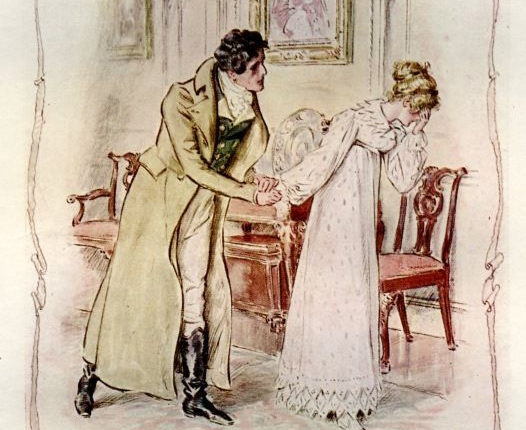Jane Austen’s character Fanny Price models the phrase “nothing is so strong as gentleness, nothing so gentle as real strength.”
I remember a time in college when I called my dad for advice about managing anxiety. I felt overwhelmed by the social pressure of school and my grades were suffering. Though I knew that academics should be my top priority, I couldn’t get my mind off the drama that plagued my group of friends. My dad had wrestled with anxiety in his own life, and I hoped that he might offer some personal insights for my situation.
“One thing you can do,” he said to me on the phone, “is try to be meek. Aim to be simple and straightforward.”
What does that mean? I thought. How do I become simpler? First, I needed to do away with expectations. One reason I had felt so betrayed in college is because I had been assuming that my friends owed me their friendship. This feeling of entitlement, I realized, originated in my false expectations. I needed to think more humbly of myself, stop demanding friendship on my terms, and start accepting it as their gift. This made sense.
But, I wondered, does anyone actually want to be meek? For contemporary women, it’s a personality trait with a negative stigma. Most people think it’s a form of weakness, on par with dullness of character or cowardice.
Enter Fanny Price from Jane Austen’s Mansfield Park. A quiet and shy character, she is feminine in a traditional sense. She yields to others’ wishes at the faintest implication that they conflict with her own. She is timid, perhaps to a fault. Never once does she place herself, her comfort, or her desires before others’. Her meekness is remarkable, especially to a modern audience.
Because of this, she ranks consistently as the least popular of Jane Austen’s heroines. Numerous readers can’t relate to Fanny because our society has turned away from almost every one of her virtues. Self-advocacy, independence, boldness, humor, and wit—all qualities of the antagonists in the story—are the traits most of us look for when evaluating a woman today. As an introverted, sincere, and dependent young woman, Fanny appears as a weak character who deserves the disdain she receives. We crave active and articulate protagonists, and Fanny won’t deliver.
But Fanny’s apparent passivity is the very source of her strength. It’s the genius of straightforward simplicity—of meekness. Resisting the temptation to retaliate against unfair treatment takes a whole lot of strength. It doesn’t come naturally to us, and yet we are called to do so time and again in the Bible. Fanny is strong precisely because of her ability to stand by her conscience and forgive her persecutors. She neither presumes nor demands. Instead, she lives simply, and takes people straightforwardly.
Looking back, I wish I had Fanny Price as a model in college. But her example and my dad’s advice have given me a goal to pursue in life: to strive for meekness. To ask to grow simpler in my desires and more straightforward in my relationships. While I can’t say that I totally defeated anxiety during my senior year, I did learn a lot about myself. Most importantly, I started to understand the courage it takes to be meek.
Pray the Litany of Humility to ask for this virtue in your daily life. And read Mansfield Park if you haven’t already. The world needs more Fanny Prices.

